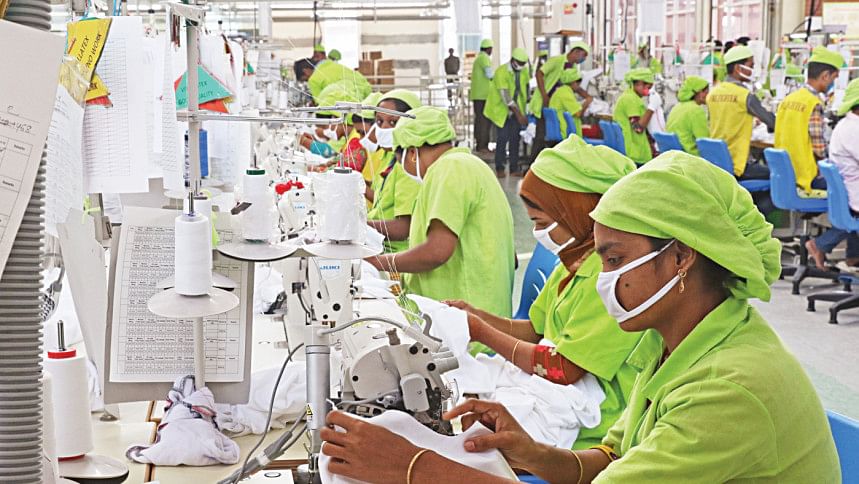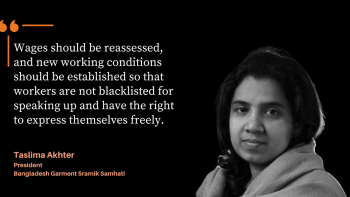Bangladesh to amend labour law by March next year

Bangladesh has committed to amending its labour law by March next year to align it with international standards and meet the 18-point demand raised by workers in September this year.
The country made this pledge at the 352nd session of the International Labour Organization (ILO) Governing Body, held from October 28 to November 7 in Geneva, according to Labour and Employment Secretary AHM Shafiquzzaman.
"We have already begun working on fulfilling the 18-point demand we committed to the workers in September during the labour unrest in the industrial sector," Shafiquzzaman told The Daily Star yesterday over the phone from Geneva.
The secretary said nearly all the 18 demands have already been met, except for two -- amending the labour law and reviewing annual increments, as union leaders sought an annual increase more than the current 5 percent.
A tripartite committee is currently working on possible amendments to the law, including easing trade union rules and documentation requirements, he added.
The ILO Governing Body is the executive body of the ILO. It meets three times a year: in March, June and November. It takes decisions on ILO policy, sets the agenda for the International Labour Conference, adopts the draft Programme and Budget for submission to the Conference and elects the director-general, according to the ILO.
At the ILO Governing Body meeting, Law Adviser Asif Nazrul also committed to reviewing the blacklisting of workers based on biometric attendance and ending assaults and harassment of workers in the workplace, according to a statement from the office of the permanent mission of Bangladesh in Geneva.
Besides, the law adviser assured the Governing Body council members that the government has been working to resolve police cases filed against workers for their involvement in wage hike demonstrations last year, the statement added.
The Minimum Wage Board, a government regulatory agency responsible for recommending changes to the minimum wage, has also submitted a proposal to the Ministry of Labour and Employment to amend the labour law and update its provisions.
The board suggested that the ministry amend the labour law to ensure strict implementation of wage structures at factories, according to the proposal.
Wishing anonymity, an official of the board said incidents of labour unrest often take place after factory owners fail to timely implement wage structures and pay workers.
Amending the labour law is a long-overdue issue in Bangladesh. Last December, the president returned the "Bangladesh Labor (Amendment) Bill-2023" unsigned, citing the need for further amendments to certain key clauses.
International bodies like the European Union (EU), the ILO, global clothing retailers and brands, North American clothing retailers and brands, and the U.S. government have urged Bangladesh to amend the labour law, easing trade union rules, simplifying union registration and lowering the worker threshold required to form a union.
Currently, forming a union in a garment factory requires the consensus and signatures of 20 percent of workers. Union leaders and international bodies advocate lowering this threshold to 5-10 percent.
They have also called on the government to enact a uniform labour law for all workers, including those in Export Processing Zones (EPZs) and outside of EPZs.
According to labour rights activists, the current two labour laws for EPZ and non-EPZ production facilities contain discriminatory provisions and benefits for workers.
However, Bangladesh cannot implement a uniform labour law for both EPZ and non-EPZ workers, as some foreign investors in EPZs argue that they invested under the condition of excluding trade unions from EPZ factories.
In the face of Rana Plaza garment building collapse and subsequent international pressure, the government previously amended the 2006 labour law in August 2013 to ensure workplace safety and labour rights issues meet international standards.
In September 2015, the government formulated labour rules to guide the proper application of the labour law at factories.
The law was further amended in 2018, again under international pressure, to lower the worker threshold for union formation to 20 percent from 30 percent.

 For all latest news, follow The Daily Star's Google News channel.
For all latest news, follow The Daily Star's Google News channel. 





Comments